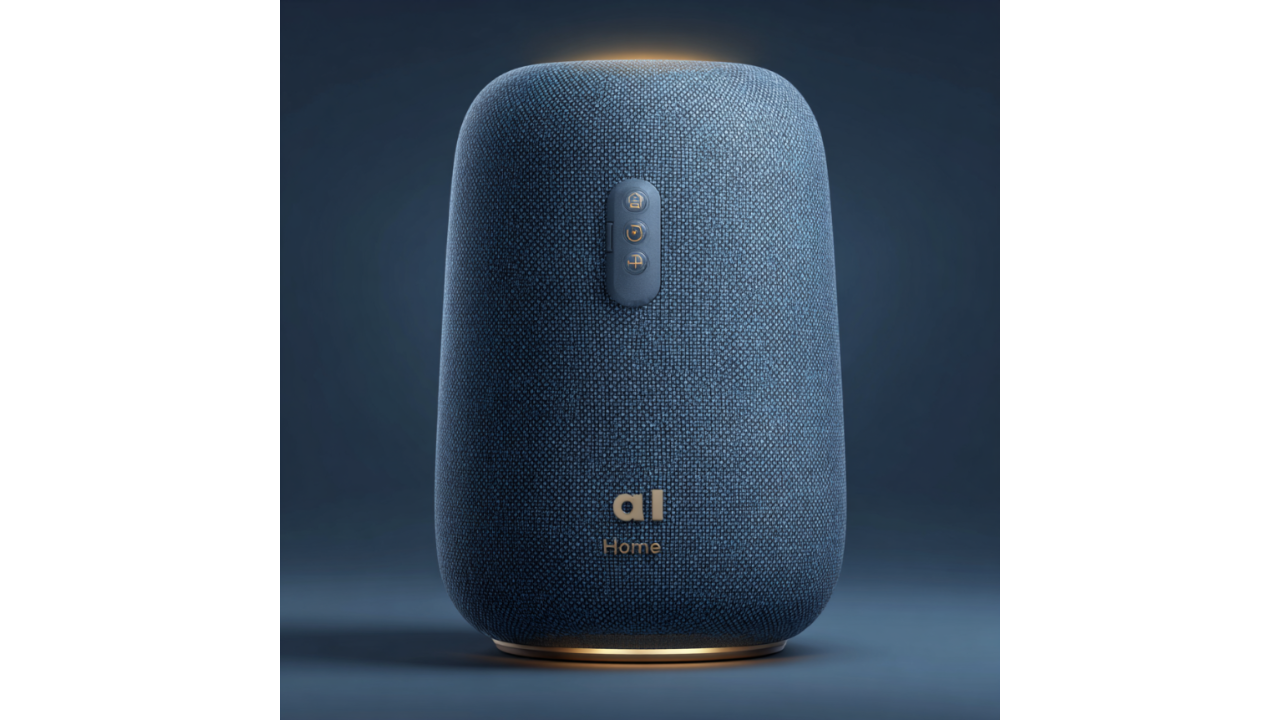Gemini 3 Deep Think: Google's Premium Reasoning Model Arrives
Google just rolled out Gemini 3 Deep Think mode to AI Ultra subscribers in the Gemini app. This isn't incremental improvement—it's a fundamental...

Google is redesigning its Home app with Gemini integration at the center, and the early glimpses suggest a fundamental shift in how we interact with smart home ecosystems. According to code analysis from Android Authority, the upcoming v3.41.50.3 version introduces an "Ask Home" search bar that lets users control devices through natural language queries—both typed and spoken—while also searching video and home history for detailed event descriptions.
@aeyespybywinsome Easier or ... imprisoned? #ai
♬ original sound - AEyeSpy
The interface changes appear modest at first glance, but the underlying functionality represents a significant departure from the current tap-and-toggle approach that has defined smart home apps for the past decade. Instead of navigating through device categories and manual controls, users can simply describe what they want to happen: "Turn off all the lights except the kitchen" or "Show me what happened in the backyard yesterday afternoon."
This natural language approach addresses one of smart home technology's persistent friction points. Current systems require users to learn specific device names, remember which lights belong to which rooms, and navigate increasingly complex app hierarchies as their smart home systems grow. Gemini's integration promises to make device control more intuitive, though the effectiveness will depend heavily on execution quality.
The redesign streamlines navigation by reducing the bottom bar from multiple tabs to just three icons, with the Favorites tab renamed to "Home" and device access moved to a grid icon within that section. These changes suggest Google is betting that AI-powered search will replace traditional category browsing as the primary interaction method.
According to Parks Associates research, 67% of smart home users report frustration with device management complexity, particularly as system size increases. The average connected home now contains 25 smart devices, making manual control increasingly impractical. Google's Gemini integration could address this scalability challenge if the natural language processing proves reliable enough for daily use.
The addition of outdoor air quality and temperature as favorite tiles, along with new video and thermometer icons, hints at expanded environmental monitoring capabilities. These features align with broader smart home trends toward ambient intelligence—systems that provide contextual information without explicit user requests.
More intriguingly, the thermometer icon may indicate upcoming Nest hardware launches scheduled for next month. This timing suggests Google is coordinating hardware releases with software capabilities, potentially offering new device categories that leverage Gemini's natural language processing for setup and control.
Gemini's integration into Google Home represents the latest attempt to solve smart home's fundamental user experience problem: the gap between what the technology can theoretically do and what users can practically accomplish. Previous solutions focused on voice assistants, but these often struggled with context, device disambiguation, and multi-step commands.
The "Ask Home" conversation screen suggests a more sophisticated approach. Rather than processing individual commands in isolation, the system appears designed for ongoing dialogue. Users could potentially say "Turn on the living room lights," followed by "Make them dimmer," with the system maintaining context across multiple interactions.
This conversational approach could be particularly valuable for complex scenarios that current smart home systems handle poorly. Instead of manually configuring automation routines through app interfaces, users might describe desired behaviors: "When I'm watching TV after 8 PM, dim the lights and close the blinds automatically."
Successful smart home adoption correlates with users' ability to create custom behaviors rather than relying on manufacturer presets. Natural language programming could dramatically lower the barrier to creating these personalized automations.
The success of Google's Gemini integration will ultimately depend on factors that code analysis can't reveal: response accuracy, system reliability, and edge case handling. Natural language processing in smart home contexts presents unique challenges, including device name disambiguation, spatial reasoning, and temporal context understanding.
Consider the complexity of a seemingly simple request: "Turn off the lights in the other room." The system must understand which room the user currently occupies, identify "the other room" from context, determine which lights belong to that space, and execute the appropriate commands. This requires not just language understanding but environmental awareness and contextual reasoning.
The video and home history search capabilities add another layer of complexity. Users will expect the system to understand queries like "Show me when the package was delivered" or "What happened in the kitchen while I was away?" This requires computer vision integration, temporal reasoning, and the ability to generate natural language descriptions of visual events.
Google's advantage lies in its AI infrastructure and data processing capabilities, but smart home environments present unique constraints. Unlike web search or document analysis, smart home AI must operate with minimal latency, handle interruptions gracefully, and maintain reliability standards appropriate for daily life activities.
Google's Gemini integration comes as the smart home market faces increasing pressure to deliver on automation promises made over the past decade. While device connectivity has improved dramatically, user experience remains frustratingly manual for many common tasks.
Amazon's Alexa has maintained market leadership through early voice assistant adoption, but recent reports suggest user engagement has plateaued as novelty wore off and limitations became apparent. Apple's HomeKit offers superior privacy and integration within the Apple ecosystem but remains constrained by device compatibility and setup complexity.
Google's approach of integrating advanced AI directly into the primary smart home interface could provide differentiation, particularly if natural language control proves more reliable than voice-only alternatives. The ability to type complex queries might appeal to users who've grown frustrated with voice assistant accuracy in noisy environments or complex scenarios.
The timing also aligns with the Matter protocol's gradual adoption, which promises improved device interoperability across platforms. If Google can combine Matter's connectivity improvements with Gemini's intelligence layer, the result could be genuinely seamless smart home control.
Beyond immediate usability improvements, Gemini's integration into Google Home signals a broader shift toward AI-native smart home experiences. Rather than retrofitting AI onto existing interfaces, Google appears to be redesigning the entire interaction model around conversational intelligence.
This approach could accelerate smart home adoption by removing technical barriers that have limited mainstream acceptance. If users can control their homes through natural language descriptions rather than device-specific commands, smart home technology becomes accessible to demographics that current interfaces exclude.
The success of this integration will likely influence how other technology companies approach smart home AI. If Google demonstrates that natural language control can replace traditional app interfaces, expect rapid adoption across the industry. If execution falls short of promises, it may reinforce skepticism about AI's practical applications in consumer technology.
For now, Google's Gemini integration represents the most ambitious attempt yet to fulfill smart home technology's original vision: homes that respond intelligently to human needs rather than requiring humans to adapt to technology limitations.
Need help evaluating how AI integration affects your smart home marketing strategy? Our team specializes in translating technology developments into practical business insights.

Google just rolled out Gemini 3 Deep Think mode to AI Ultra subscribers in the Gemini app. This isn't incremental improvement—it's a fundamental...

Google released another Gemini Live update, and the pattern feels increasingly familiar. Faster responses. More expressive voices. Different accents....

While everyone was breathlessly covering Gemini 3 Flash's "frontier intelligence," Google quietly released T5Gemma 2—a family of encoder-decoder...